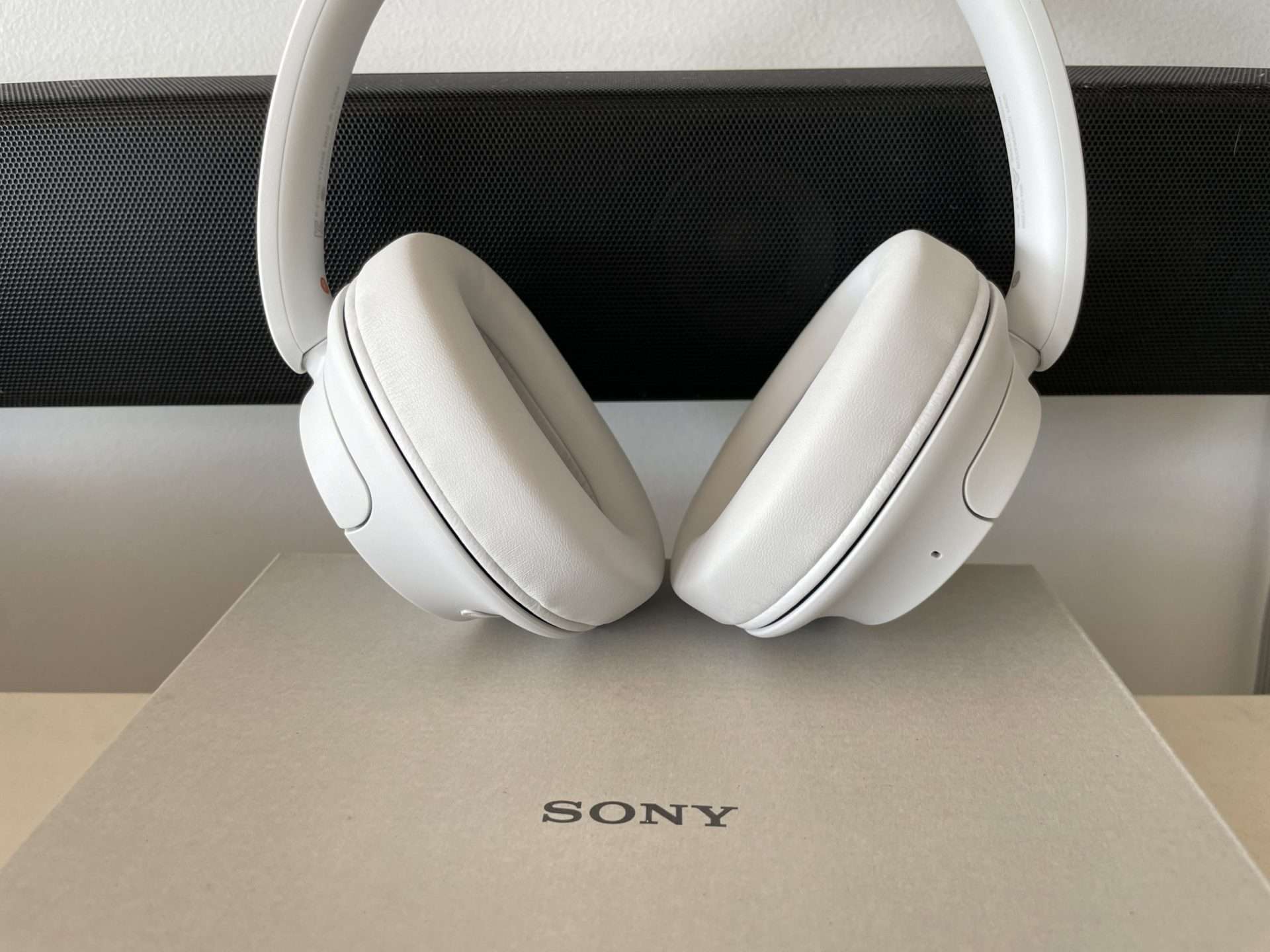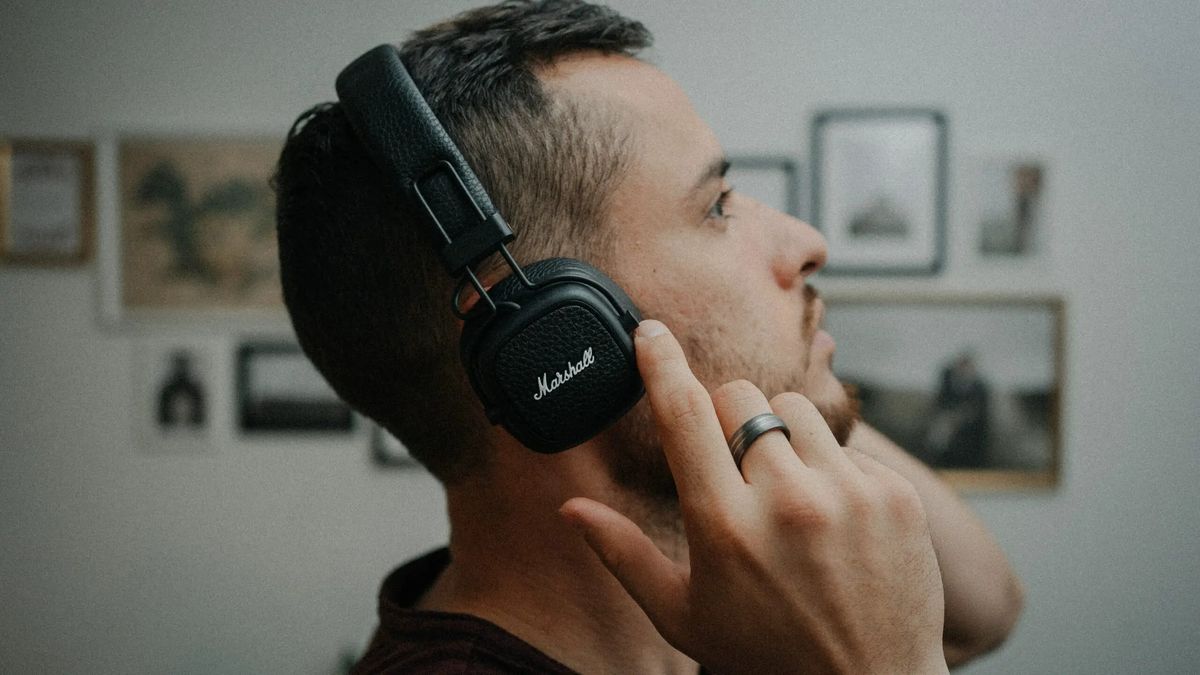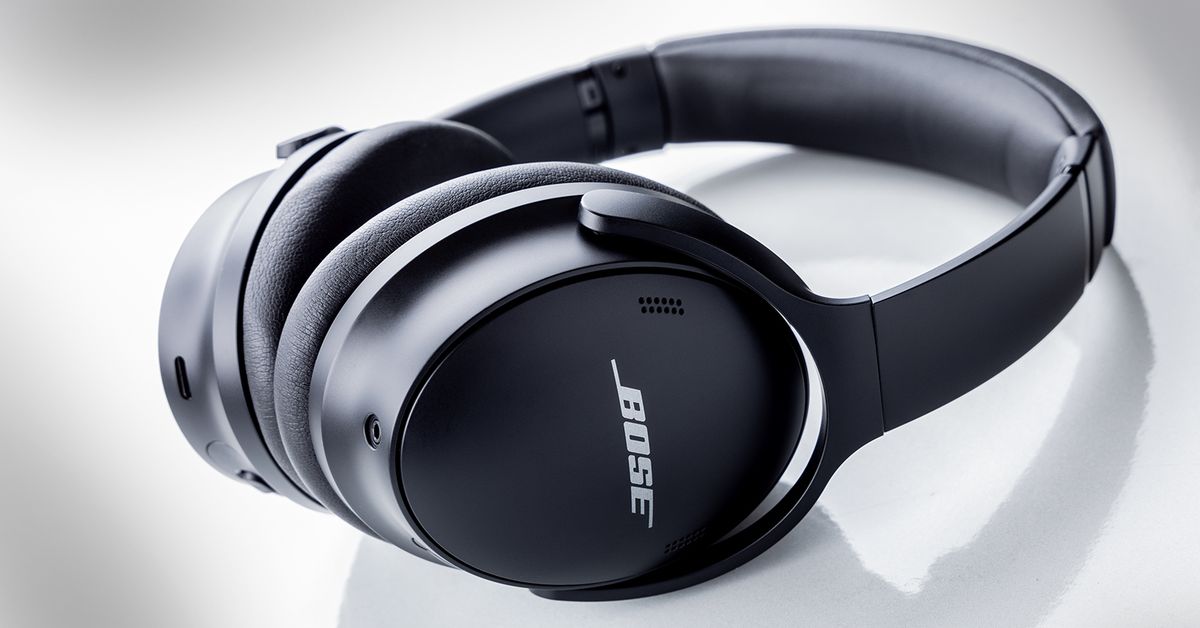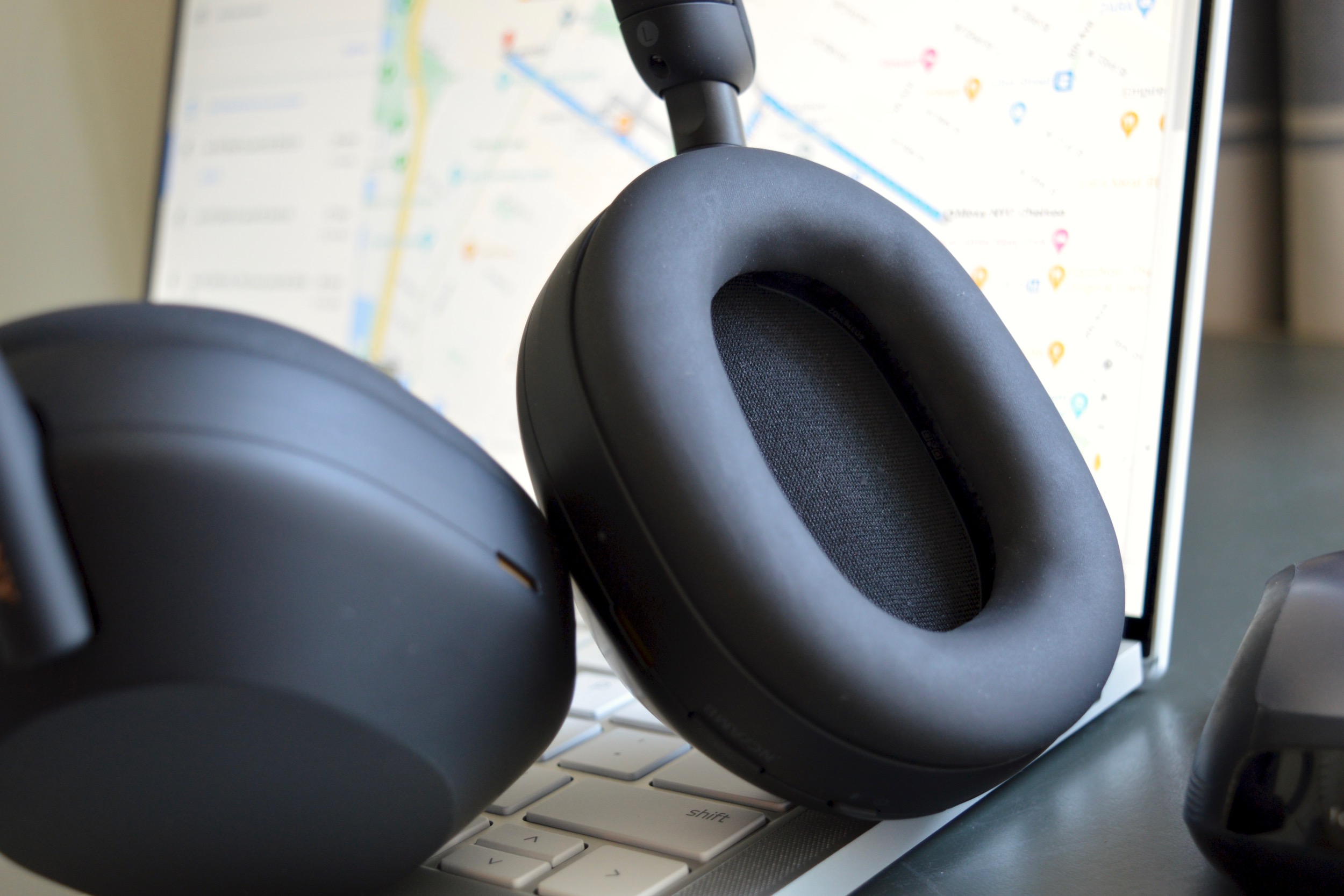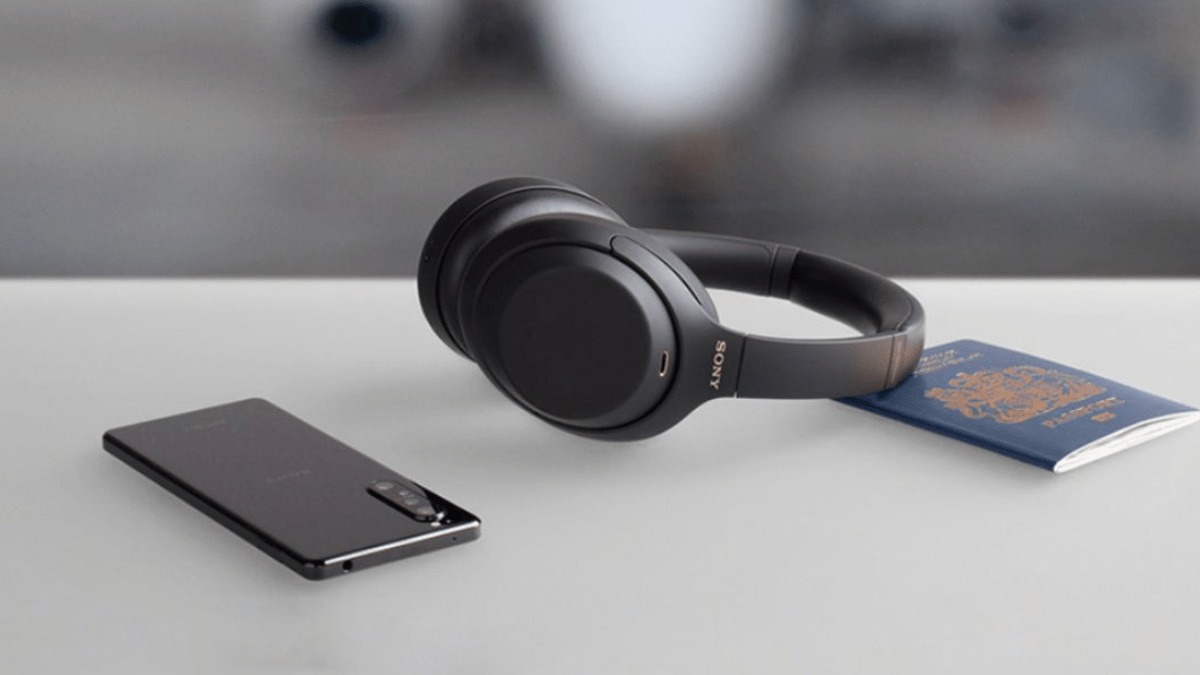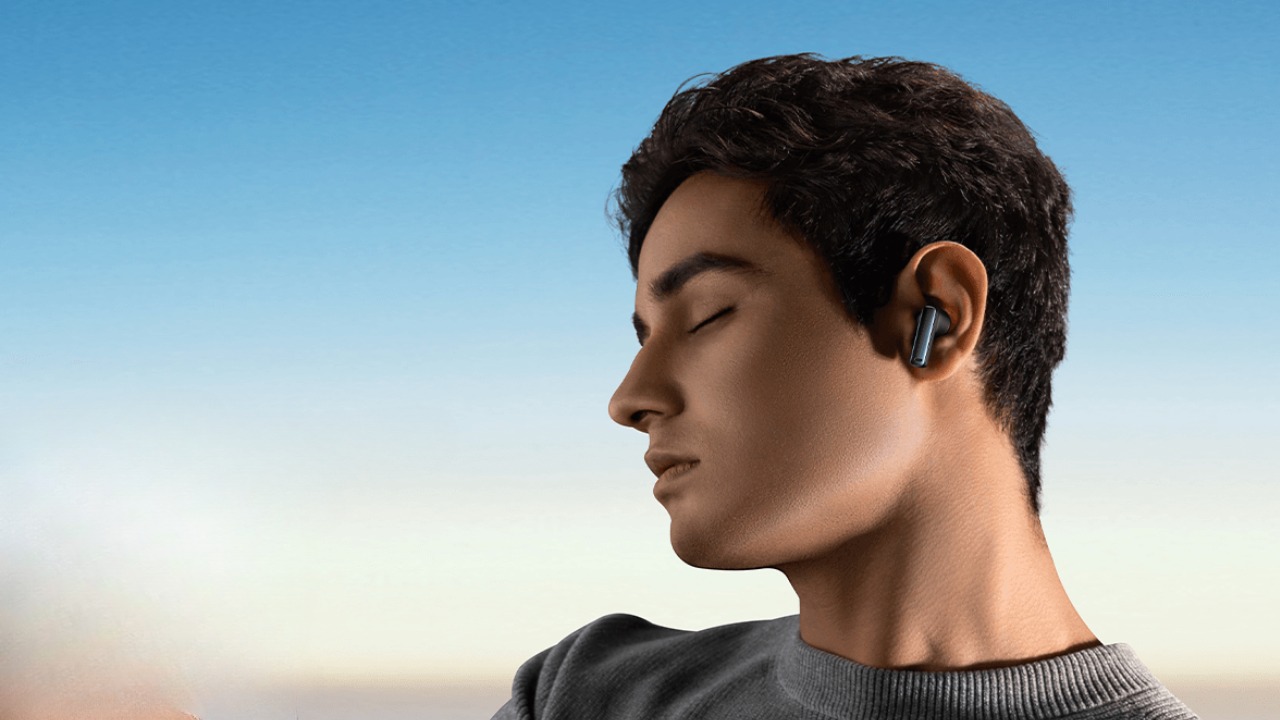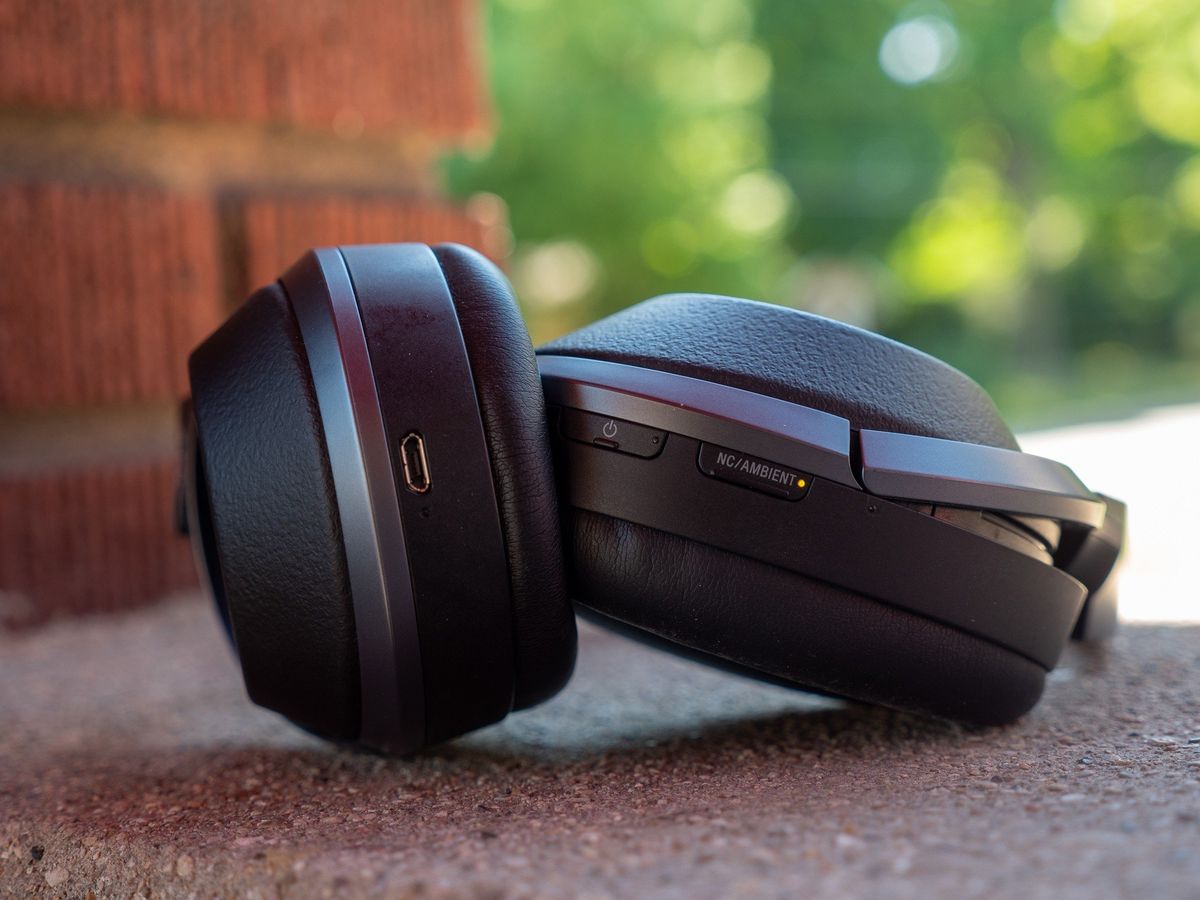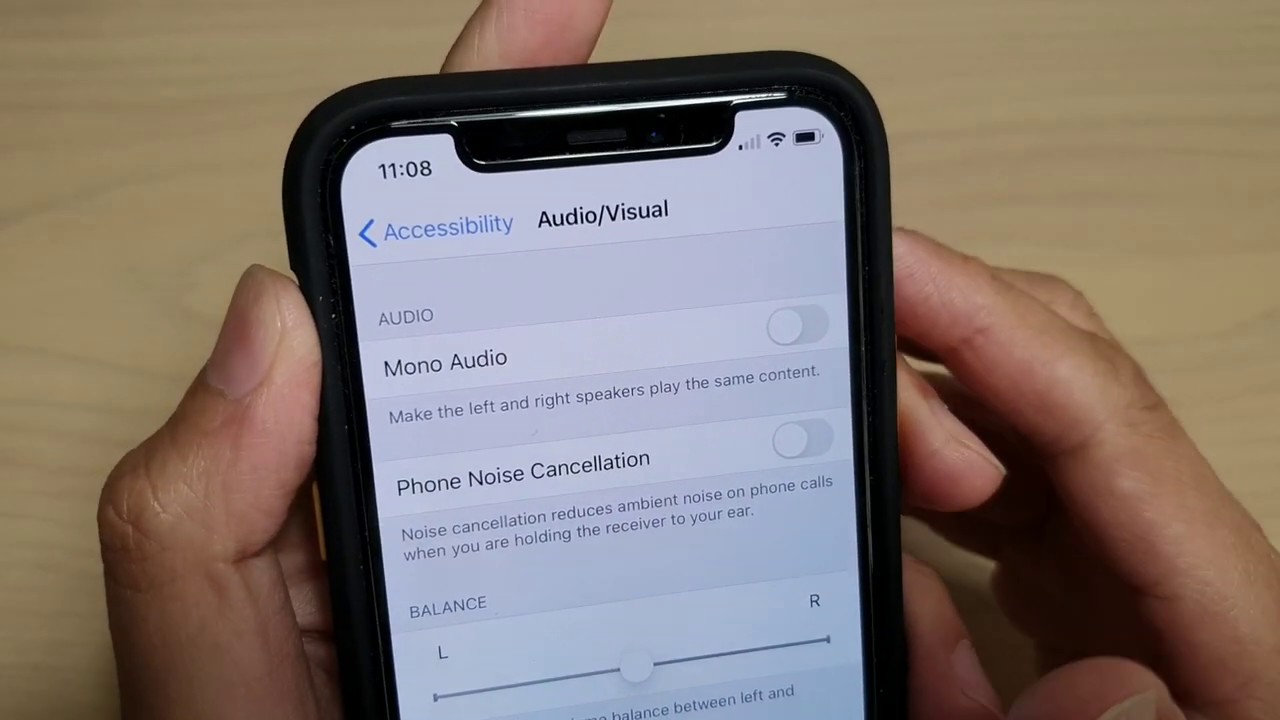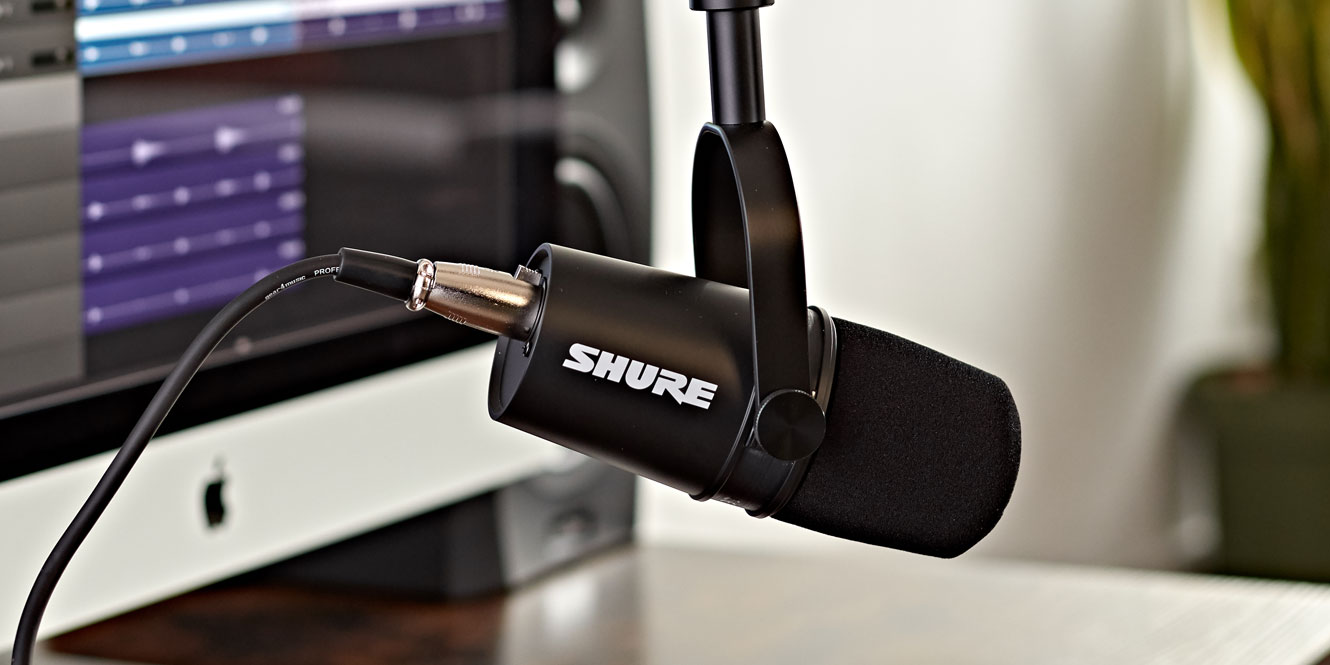Home>Production & Technology>Noise Cancellation>What Is Noise Cancellation Headphones
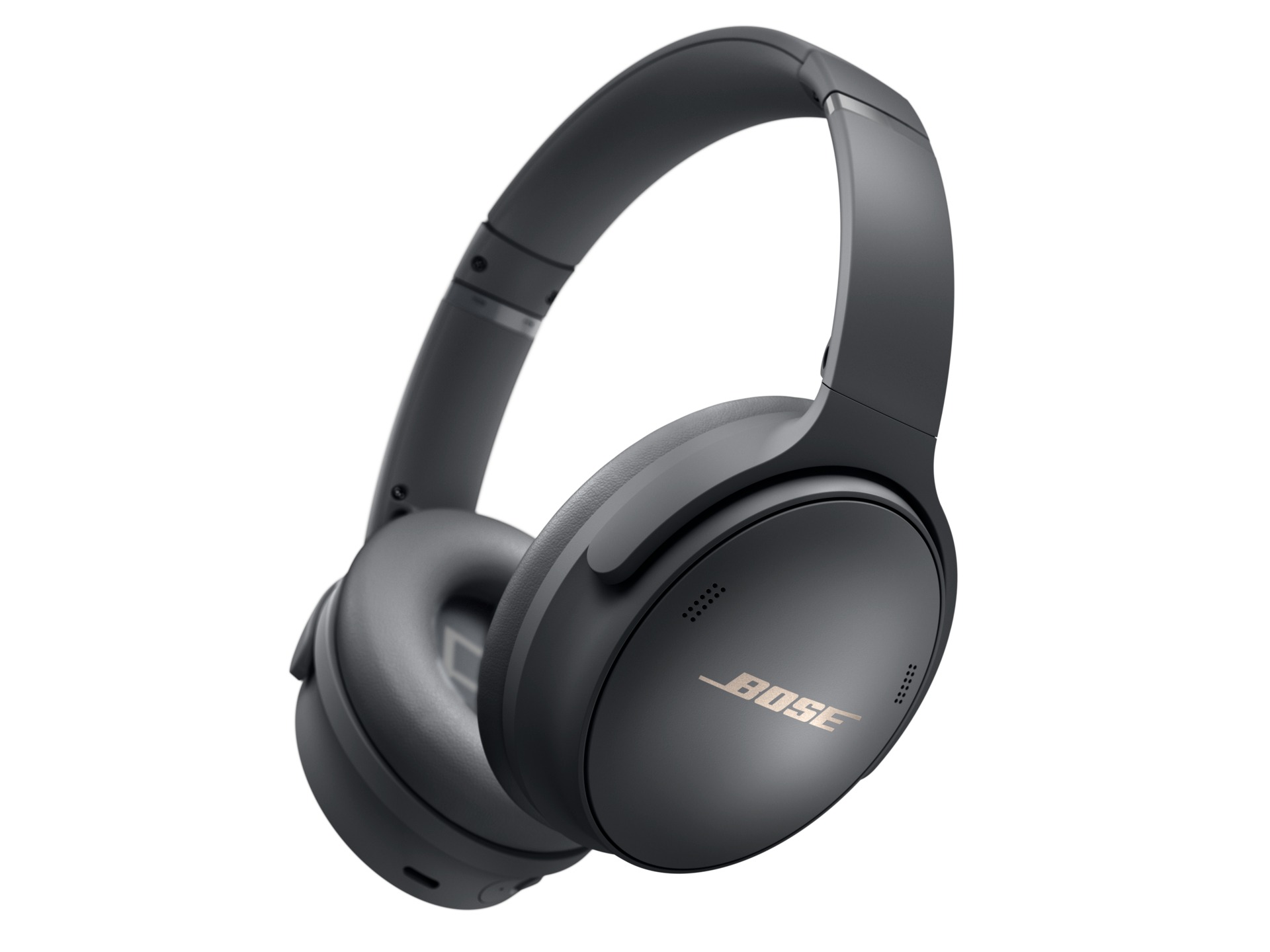

Noise Cancellation
What Is Noise Cancellation Headphones
Modified: January 22, 2024
Discover the power of noise cancellation headphones and experience a peaceful and immersive sound with our top-rated selection of noise cancellation headphones.
(Many of the links in this article redirect to a specific reviewed product. Your purchase of these products through affiliate links helps to generate commission for AudioLover.com, at no extra cost. Learn more)
Table of Contents
Introduction
Noise can be a constant distraction in our daily lives, whether it’s the sound of traffic, bustling office chatter, or the drone of an airplane engine during long flights. These unnecessary sounds not only disturb our peace but can also affect our focus and productivity. This is where noise cancellation headphones come to the rescue.
Noise cancellation headphones are a technological marvel that have revolutionized the way we experience audio. By actively reducing or eliminating external sounds, these headphones create a serene listening environment, allowing us to fully immerse ourselves in our favorite music, podcasts, or videos.
This article will explore the fascinating world of noise cancellation headphones, shedding light on how they work, the different types available, and the benefits they offer. We will also discuss their limitations and important factors to consider when choosing the perfect pair for your needs.
Whether you’re a frequent traveler, a student trying to study in a noisy environment, or simply a music enthusiast seeking an optimal listening experience, noise cancellation headphones can be a game-changer. Get ready to dive into the world of cutting-edge audio technology and discover the wonders of noise cancellation.
How Noise Cancellation Headphones Work
Noise cancellation headphones employ advanced technology to reduce or eliminate unwanted external sounds. They achieve this through a process known as active noise cancellation (ANC).
The first step in understanding how noise cancellation headphones work is to grasp the concept of sound waves. Sound travels in waves, characterized by peaks and valleys. When we hear a sound, it is because these waves are entering our ears and stimulating our eardrums.
Noise cancellation headphones use microphones to detect the external sounds in the surrounding environment. These microphones pick up the ambient noise and send the sound waves to the headphones’ built-in processor.
The processor then analyzes the sound waves and generates an inverse wave, essentially creating a mirror image of the incoming noise wave. By playing back this inverted sound wave through the headphones’ speakers, it effectively cancels out the original noise.
This cancellation process occurs in real-time and is continuously adjusted based on the incoming sounds. As a result, the headphones are able to significantly reduce or eliminate the background noise, providing a more peaceful and immersive listening experience.
It’s important to note that noise cancellation is most effective for constant or low-frequency sounds such as the hum of an air conditioner, the rumble of an engine, or the ambient chatter in a crowded space. Sudden and high-pitched sounds like sirens or loud voices may not be completely eliminated by noise cancellation technology.
Now that we have a basic understanding of how noise cancellation headphones work, let’s explore the different types of noise cancellation headphones available in the market.
Types of Noise Cancellation Headphones
When it comes to noise cancellation headphones, there are primarily two types: passive and active noise cancellation.
Passive noise cancellation headphones, also known as noise-isolating headphones, rely on physical barriers to block out external sounds. These headphones use dense padding and fit snugly over the ears to create a seal that prevents ambient noise from entering. The passive noise cancellation effect is achieved by the headphones’ design and does not require any additional technology. While they can block out some noise, they are generally less effective than active noise cancellation headphones.
On the other hand, active noise cancellation (ANC) headphones take noise reduction to the next level. They incorporate advanced technology and electronic components to actively counteract external noise. ANC headphones use microphones to detect ambient sounds and then generate inverse sound waves to cancel them out. This technology allows for a more precise and effective reduction of unwanted noise, providing a superior listening experience.
Within the category of active noise cancellation headphones, there are two sub-types: feedforward and feedback ANC.
Feedforward ANC is the most common type and is designed to tackle external noise before it reaches your ears. The microphones in these headphones are placed on the outside of the ear cups to capture the ambient sounds. The processor then generates the inverse sound waves to cancel out the noise. Feedforward ANC is effective for reducing continuous and predictable sounds but may struggle with abrupt sounds.
Feedback ANC, also known as “hybrid ANC,” works by capturing the sound inside your ears using microphones placed inside the ear cups. By analyzing this internal sound and comparing it to the sound being played by the headphones, feedback ANC is able to make precise adjustments to cancel out the noise. This type of ANC is particularly effective in canceling out sudden or irregular noises.
It’s worth noting that some noise cancellation headphones offer the option to switch between passive and active noise cancellation modes. This gives users the flexibility to choose the level of noise reduction that best suits their needs in different environments.
Now that we have explored the different types of noise cancellation headphones, let’s delve into the numerous benefits that they provide.
Benefits of Using Noise Cancellation Headphones
Noise cancellation headphones offer a range of benefits that enhance the audio experience and improve our well-being in various settings. Here are some key advantages of using noise cancellation headphones:
- Enhanced Audio Quality: Noise cancellation technology allows you to enjoy your favorite music, podcasts, or movies with exceptional clarity. By reducing or eliminating external noise, you can hear every detail and nuance of the audio without distractions.
- Improved Focus and Productivity: Whether you’re studying, working in a noisy office, or trying to concentrate in a busy coffee shop, noise cancellation headphones create a serene environment that promotes concentration and boosts productivity. The ability to block out distractions helps you maintain focus on the task at hand.
- Reduced Stress and Fatigue: Constant exposure to loud or irritating sounds can lead to stress and fatigue. Noise cancellation headphones provide a respite from the cacophony of the outside world, creating a peaceful space where you can relax, unwind, and recharge.
- Enhanced Travel Experience: Air travel can be particularly noisy due to the engine noise, cabin announcements, and fellow passengers. Noise cancellation headphones provide a sanctuary in the sky, allowing you to enjoy your inflight entertainment or simply find tranquility during long journeys.
- Better Sleep: If you struggle with falling asleep due to noise disturbances, noise cancellation headphones can be a game-changer. Whether you’re in a busy city or a noisy hotel room, these headphones can help create a serene sleep environment by blocking out external sounds.
- Protection for Your Hearing: In loud environments, such as concerts or construction sites, prolonged exposure to high decibel levels can damage your hearing. Noise cancellation headphones reduce the need to turn up the volume excessively, protecting your ears from potential harm.
- Privacy: Noise cancellation headphones can provide a sense of privacy in public spaces. They help prevent others from overhearing your audio content and allow you to stay engrossed in your own world.
With these significant benefits, noise cancellation headphones have become a must-have accessory for those seeking high-quality audio, enhanced focus, and tranquility in a world filled with noise. However, it’s important to understand that noise cancellation technology does have its limitations, which we will explore in the next section.
Limitations of Noise Cancellation Technology
While noise cancellation headphones offer numerous advantages, it’s important to understand their limitations. Here are a few key limitations to consider:
- Ineffectiveness with Sudden or Impulsive Sounds: Noise cancellation technology is most effective at reducing constant or low-frequency sounds. However, it may struggle to cancel out sudden and impulsive sounds such as sirens, car horns, or loud voices. The technology needs time to analyze and generate inverse sound waves, which can result in a slight delay in noise reduction.
- Dependency on Power: Active noise cancellation requires power to operate. Most noise cancellation headphones have built-in batteries or rely on a connected device for power. If the battery dies or the power source is disconnected, the noise cancellation feature may be disabled, and the headphones will function as regular passive headphones.
- Reduced Audio Quality in Certain Frequencies: While noise cancellation technology greatly enhances the audio experience, it can sometimes have a minor impact on the overall sound quality. In rare cases, it may lead to a slight loss of clarity or harmonic distortion, particularly in the high-frequency range.
- Comfort and Fit: Noise cancellation headphones often have a larger and bulkier design compared to standard headphones. This may result in less portability and make them slightly less comfortable for some individuals, especially for extended periods of use.
- Potential Interference: In rare cases, noise cancellation headphones may experience interference from other electronic devices, causing static or buzzing sounds. This is more common with wireless noise cancellation headphones, where the wireless signals can sometimes interfere with the noise cancellation circuitry.
It’s important to keep these limitations in mind when considering noise cancellation headphones. However, despite these drawbacks, the benefits they offer, such as enhanced audio quality, improved focus, and reduced stress, outweigh these minor limitations for most users.
Now that we have discussed the limitations, let’s move on to the next section, where we will explore the important factors to consider when choosing noise cancellation headphones.
Factors to Consider When Choosing Noise Cancellation Headphones
When shopping for noise cancellation headphones, there are several important factors to consider to ensure you find the perfect pair for your needs. Here are some key factors to keep in mind:
- Sound Quality: While noise cancellation is important, it’s equally crucial to consider the overall sound quality of the headphones. Look for headphones that offer a balanced audio profile with clear highs, detailed mids, and punchy bass.
- Noise Cancellation Performance: Different models of noise cancellation headphones vary in their effectiveness. Read reviews and look for headphones with excellent noise cancellation performance, particularly in reducing low-frequency sounds and constant background noise.
- Battery Life: If you opt for active noise cancellation headphones, pay attention to the battery life. Consider how long you typically use headphones in a single session and choose a pair that can provide sufficient battery life to meet your needs.
- Comfort and Fit: Since you’ll likely be wearing your noise cancellation headphones for extended periods, comfort is essential. Look for headphones with padded ear cups and an adjustable headband. Opt for lightweight models that won’t cause discomfort or fatigue.
- Wireless or Wired: Decide whether you prefer wireless or wired headphones. Wireless models offer greater flexibility and freedom of movement, while wired headphones provide a more reliable and uninterrupted audio connection.
- Connectivity Options: If you choose wireless headphones, consider the available connectivity options. Bluetooth is the most common wireless technology, but ensure that the headphones have the latest version for optimal performance.
- Price: Set a budget for your noise cancellation headphones. Prices can vary widely depending on the brand, features, and overall quality. Consider your needs and determine what you’re willing to invest in a pair of quality headphones.
- Reviews and Recommendations: Research and read reviews from trusted sources or seek recommendations from friends or online communities. This can give you valuable insights into the performance, durability, and user experience of different headphone models.
By considering these factors, you can narrow down your options and find noise cancellation headphones that truly meet your requirements and preferences. Now, let’s explore some popular noise cancellation headphone brands that are known for their exceptional quality and performance.
Popular Noise Cancellation Headphone Brands
When it comes to noise cancellation headphones, there are several reputable brands that have established themselves as leaders in the industry. These brands are known for producing high-quality headphones with exceptional noise cancellation capabilities. Here are some popular noise cancellation headphone brands to consider:
- Bose: Bose is renowned for its noise cancellation technology. Their headphones, such as the Bose QuietComfort series, consistently deliver impressive noise reduction and excellent sound quality.
- Sony: Sony has made a name for itself in the world of noise cancellation headphones with their popular WH-1000XM series. These headphones receive high praise for their exceptional noise cancellation performance and audio quality.
- Sennheiser: Sennheiser is a respected audio company that offers a range of noise cancellation headphones. Their headphones boast excellent sound quality, comfort, and effective noise reduction.
- Jabra: Jabra specializes in wireless noise cancellation headphones that are popular for their advanced noise cancellation technology and durability. They offer a great balance of features and affordability.
- Apple: Apple’s AirPods Pro and AirPods Max are widely hailed for their seamless integration with Apple devices and effective noise cancellation. They offer a sleek design and convenient features for Apple users.
- Beyerdynamic: Beyerdynamic is an audio company known for its high-fidelity headphones. Their noise cancellation headphones provide immersive sound quality and effective noise reduction for audiophiles.
- Audio-Technica: Audio-Technica offers a range of noise cancellation headphones that excel in both performance and affordability. They are known for their balanced sound reproduction and comfortable fit.
- JBL: JBL is a popular brand known for its portable Bluetooth noise cancellation headphones. They offer a wide range of options at different price points, with solid noise reduction capabilities.
These are just a few examples of the many reputable noise cancellation headphone brands available in the market. When choosing the right brand, consider factors such as noise cancellation performance, sound quality, comfort, and your budget.
Now that we have explored popular brands, let’s conclude our journey into the world of noise cancellation headphones.
Conclusion
Noise cancellation headphones have become indispensable companions in our increasingly noisy world. With their ability to reduce or eliminate unwanted external sounds, these headphones offer a range of benefits, including enhanced audio quality, improved focus, reduced stress, and better sleep.
Understanding how noise cancellation headphones work and the different types available can help you make an informed decision when choosing the perfect pair. Passive and active noise cancellation headphones each have their advantages, with active noise cancellation providing more precise and effective noise reduction.
While noise cancellation technology has its limitations, such as its effectiveness with sudden or impulsive sounds, the benefits of noise cancellation headphones outweigh these minor drawbacks for most users. Factors like sound quality, noise cancellation performance, comfort, and price should be considered when selecting the right pair for your needs.
Several well-established brands, including Bose, Sony, Sennheiser, and Jabra, are recognized for their exceptional noise cancellation technology and overall headphone quality. However, there are numerous other brands available, each with their own merits.
Whether you’re a frequent traveler, a student seeking a quiet study environment, or simply an audio enthusiast wanting an undisturbed listening experience, noise cancellation headphones provide the serenity and immersion you desire.
So, dive into the world of noise cancellation headphones, and discover the pleasure of enjoying your favorite audio content without the intrusion of external noise. Choose the perfect pair that caters to your needs and preferences, and embrace the peace and tranquility that these remarkable headphones bring to your life.

